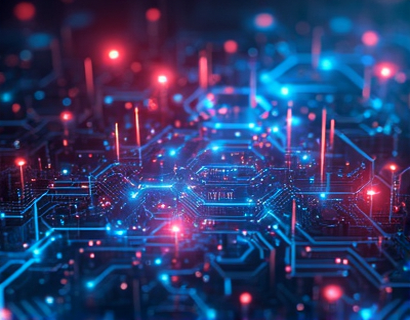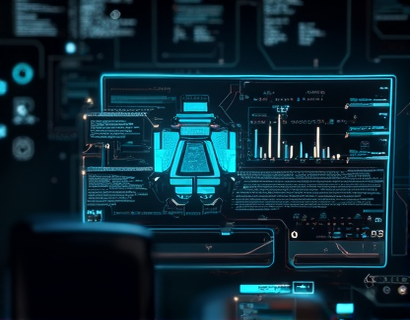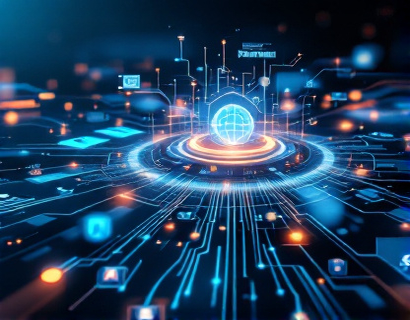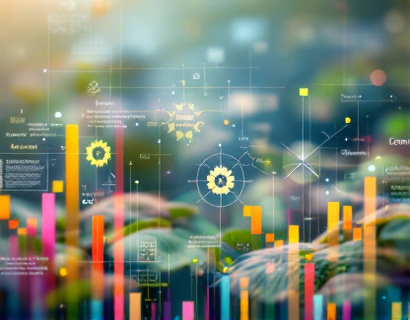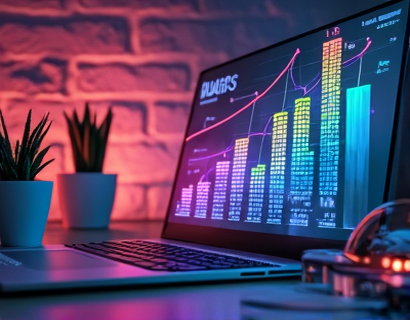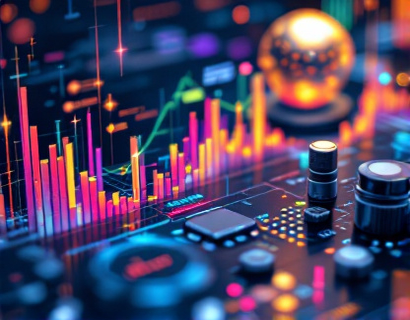Revolutionizing Productivity with AI and Crypto: The Next Generation of Digital Solutions
The integration of Artificial Intelligence (AI) and cryptocurrency is ushering in a new era of digital transformation, one that promises to revolutionize productivity and redefine app ecosystems. This fusion of technologies is not just a trend but a fundamental shift in how we approach daily tasks, business operations, and innovation. For tech innovators and early adopters, understanding this synergy is crucial to staying ahead in a rapidly evolving digital landscape.
The convergence of AI and cryptocurrency is creating a powerful ecosystem that enhances efficiency, security, and user experience. AI technologies, with their ability to process vast amounts of data and learn from patterns, are finding new applications in the realm of cryptocurrency. Conversely, the decentralized and secure nature of blockchain technology is providing a robust foundation for AI applications, ensuring data integrity and user trust.
Enhancing App Ecosystems with AI and Crypto
App ecosystems are at the heart of this revolution, serving as platforms where AI and cryptocurrency technologies converge to create innovative solutions. These ecosystems are evolving to incorporate smart contracts, decentralized applications (dApps), and tokenized incentives, all powered by AI to optimize performance and user engagement. The result is a more dynamic, responsive, and secure environment for users and developers alike.
One of the key benefits of this integration is the enhancement of app functionalities. AI-driven analytics can predict user behavior and preferences, allowing for personalized experiences that are both intuitive and efficient. For instance, AI can optimize the matching of users with relevant services or products, reducing friction and increasing satisfaction. In the context of cryptocurrency, AI can enhance trading algorithms, risk management, and portfolio optimization, providing users with more accurate and timely insights.
Transforming Daily Tasks with AI and Crypto
The impact of AI and cryptocurrency on daily tasks is profound. Tasks that were once time-consuming and cumbersome are now streamlined through automated processes and decentralized solutions. For example, AI-powered virtual assistants can manage schedules, reminders, and even financial transactions using cryptocurrency, all while ensuring privacy and security. This not only saves time but also reduces the cognitive load on users, allowing them to focus on more critical tasks.
Moreover, the use of blockchain technology ensures that transactions are transparent and immutable, eliminating the need for intermediaries and reducing costs. This is particularly beneficial in areas such as supply chain management, where AI can track and verify the authenticity and origin of products, while cryptocurrency ensures secure and efficient payments.
User Experience and Technological Integration
The user experience is a critical factor in the adoption of AI and cryptocurrency-driven solutions. A seamless and intuitive interface is essential to ensure that users can leverage these technologies without extensive technical knowledge. This is where the role of AI becomes paramount, as it can adapt to user preferences and behaviors, providing a tailored experience that feels natural and effortless.
Technological integration is another key aspect. The combination of AI and cryptocurrency requires a robust infrastructure that can handle complex computations, data storage, and secure transactions. Cloud computing and edge computing play a vital role in this, enabling low-latency access to AI services and ensuring that blockchain operations are efficient and scalable. This integration not only enhances performance but also paves the way for new applications and services that were previously unimaginable.
Security and Trust in AI and Crypto Solutions
Security and trust are foundational to the success of AI and cryptocurrency technologies. The decentralized nature of blockchain provides a high level of security, as data is distributed across a network of nodes, making it resistant to tampering and cyber attacks. AI, on the other hand, can enhance security through advanced threat detection and response systems. Machine learning algorithms can identify and mitigate potential vulnerabilities in real-time, ensuring that user data and transactions remain secure.
Trust is also a critical component. Users need to have confidence in the technologies they adopt, and this is where transparency and accountability come into play. Blockchain's immutable ledger ensures that all transactions are recorded and verifiable, while AI can provide auditable and explainable decision-making processes. This combination fosters a sense of trust, encouraging more widespread adoption and use of these technologies.
Innovative Applications and Use Cases
The potential applications of AI and cryptocurrency are vast and varied. In the realm of finance, decentralized finance (DeFi) platforms are leveraging AI to create more efficient and accessible financial services. These platforms offer lending, borrowing, and trading capabilities without traditional financial intermediaries, reducing costs and increasing accessibility. AI-driven risk assessment and fraud detection further enhance the reliability and safety of these services.
In the healthcare sector, AI and cryptocurrency are transforming patient care and data management. AI algorithms can analyze medical data to provide personalized treatment recommendations, while blockchain ensures the secure and privacy-preserving sharing of patient records. Cryptocurrency-based incentives can motivate patients to participate in research studies, providing valuable data for medical advancements.
In the realm of supply chain and logistics, AI and blockchain are revolutionizing how goods are tracked and managed. AI can optimize routes and predict demand, while blockchain ensures transparency and traceability at every stage of the supply chain. This not only improves efficiency but also enhances consumer trust by providing verifiable information about product origins and quality.
Challenges and Considerations
Despite the numerous benefits, the integration of AI and cryptocurrency is not without challenges. One of the primary concerns is the regulatory landscape, which is still evolving and varies significantly across different regions. Compliance with regulations related to data privacy, financial transactions, and cybersecurity is crucial for the successful deployment of these technologies. Additionally, the energy consumption associated with blockchain operations, particularly proof-of-work models, raises environmental concerns that need to be addressed.
Another challenge is the technical complexity involved in developing and maintaining AI and cryptocurrency systems. Developers require a deep understanding of both technologies to create robust and secure applications. Education and training programs are essential to build a skilled workforce capable of driving innovation in this space.
Future Outlook and Opportunities
The future of AI and cryptocurrency is bright, with numerous opportunities for growth and innovation. As technology continues to advance, we can expect to see more sophisticated AI models that can better integrate with blockchain systems, leading to even more efficient and user-friendly applications. The rise of quantum computing, for instance, could significantly enhance the capabilities of AI, enabling faster and more complex computations.
Moreover, the increasing adoption of 5G and IoT technologies will further accelerate the integration of AI and cryptocurrency, creating a more interconnected and intelligent world. Smart cities, autonomous vehicles, and IoT devices can all benefit from AI-driven analytics and secure cryptocurrency transactions, paving the way for a more seamless and efficient digital experience.
For tech innovators and early adopters, the potential is immense. By embracing AI and cryptocurrency, they can develop cutting-edge solutions that not only enhance productivity but also address real-world challenges. The key is to stay informed, collaborate with experts, and continuously explore new possibilities in this exciting and rapidly evolving field.




